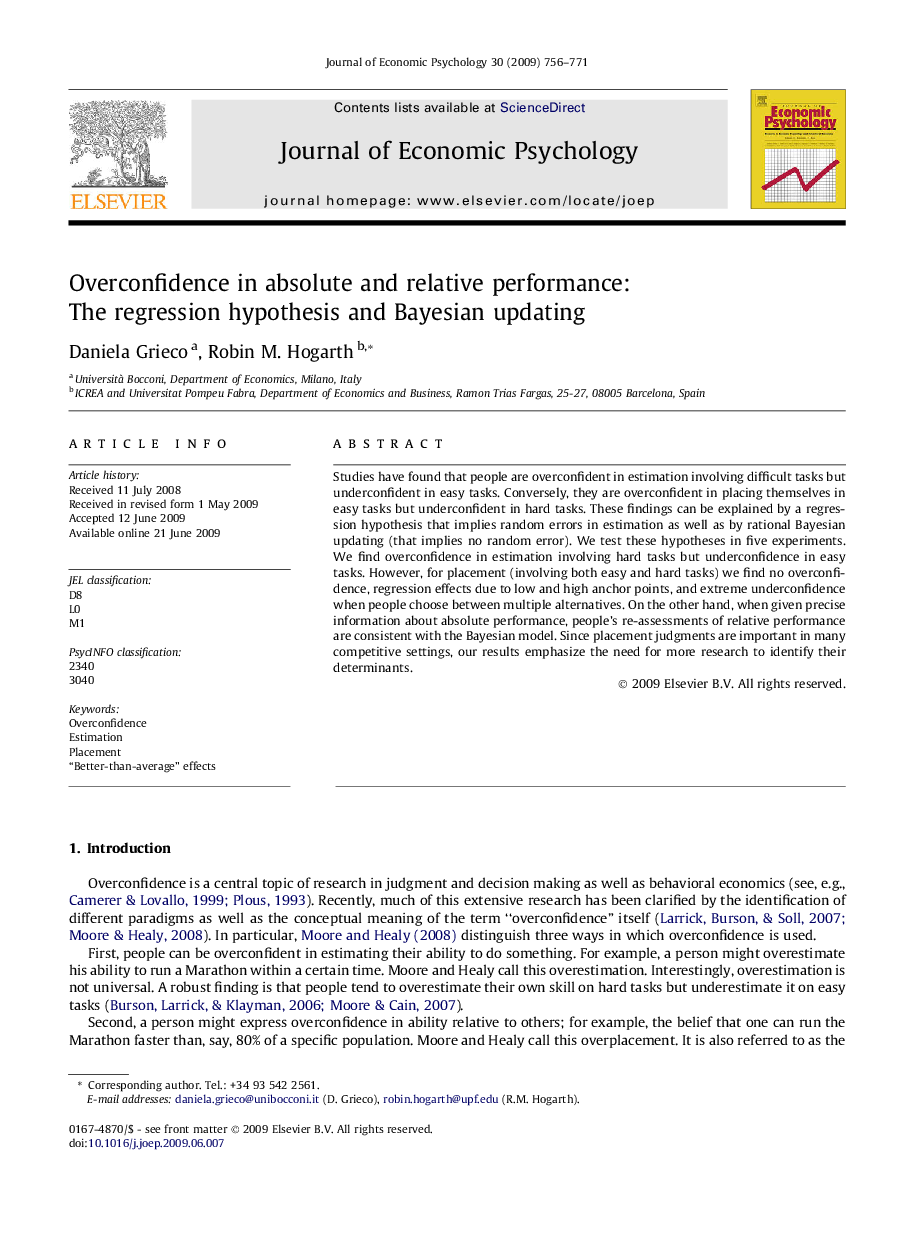| Article ID | Journal | Published Year | Pages | File Type |
|---|---|---|---|---|
| 885339 | Journal of Economic Psychology | 2009 | 16 Pages |
Studies have found that people are overconfident in estimation involving difficult tasks but underconfident in easy tasks. Conversely, they are overconfident in placing themselves in easy tasks but underconfident in hard tasks. These findings can be explained by a regression hypothesis that implies random errors in estimation as well as by rational Bayesian updating (that implies no random error). We test these hypotheses in five experiments. We find overconfidence in estimation involving hard tasks but underconfidence in easy tasks. However, for placement (involving both easy and hard tasks) we find no overconfidence, regression effects due to low and high anchor points, and extreme underconfidence when people choose between multiple alternatives. On the other hand, when given precise information about absolute performance, people’s re-assessments of relative performance are consistent with the Bayesian model. Since placement judgments are important in many competitive settings, our results emphasize the need for more research to identify their determinants.
